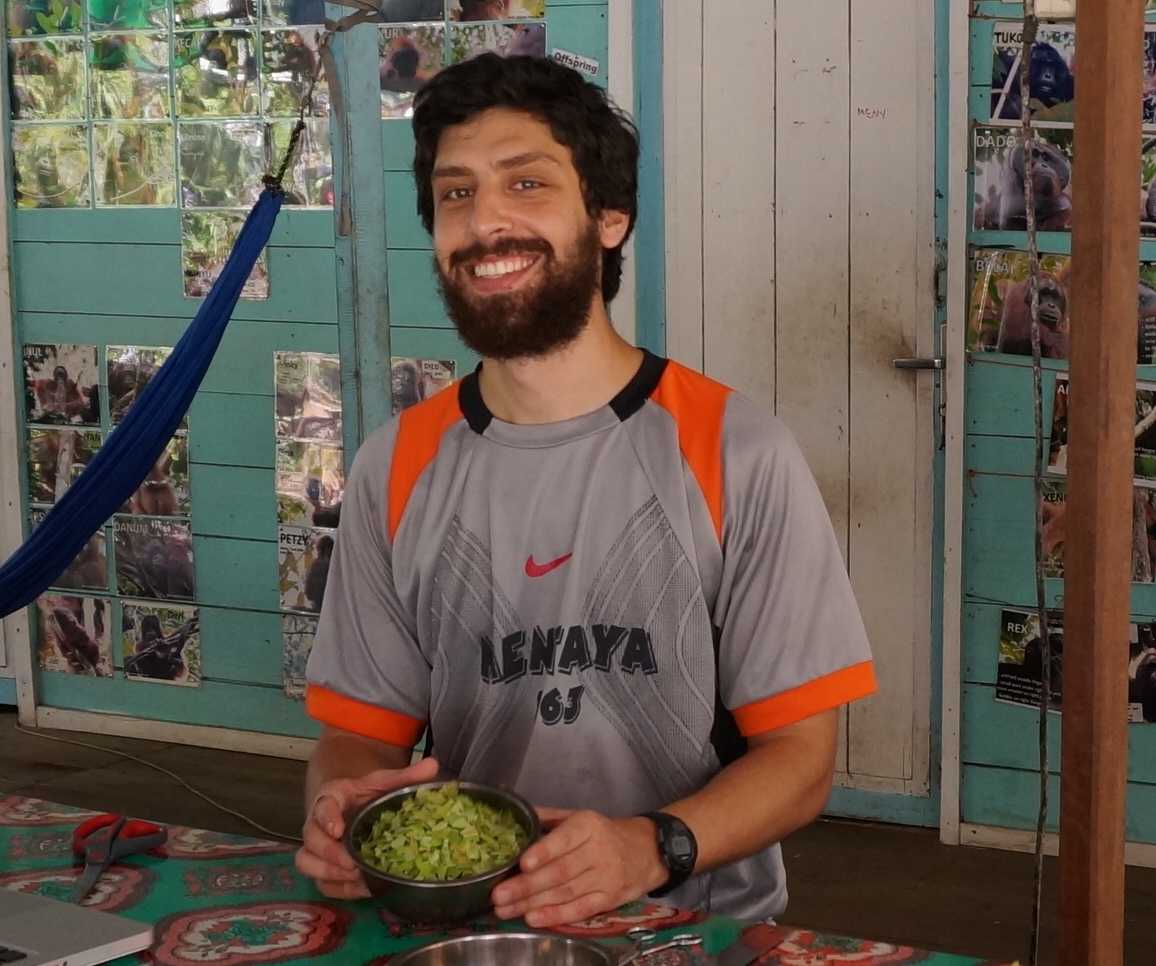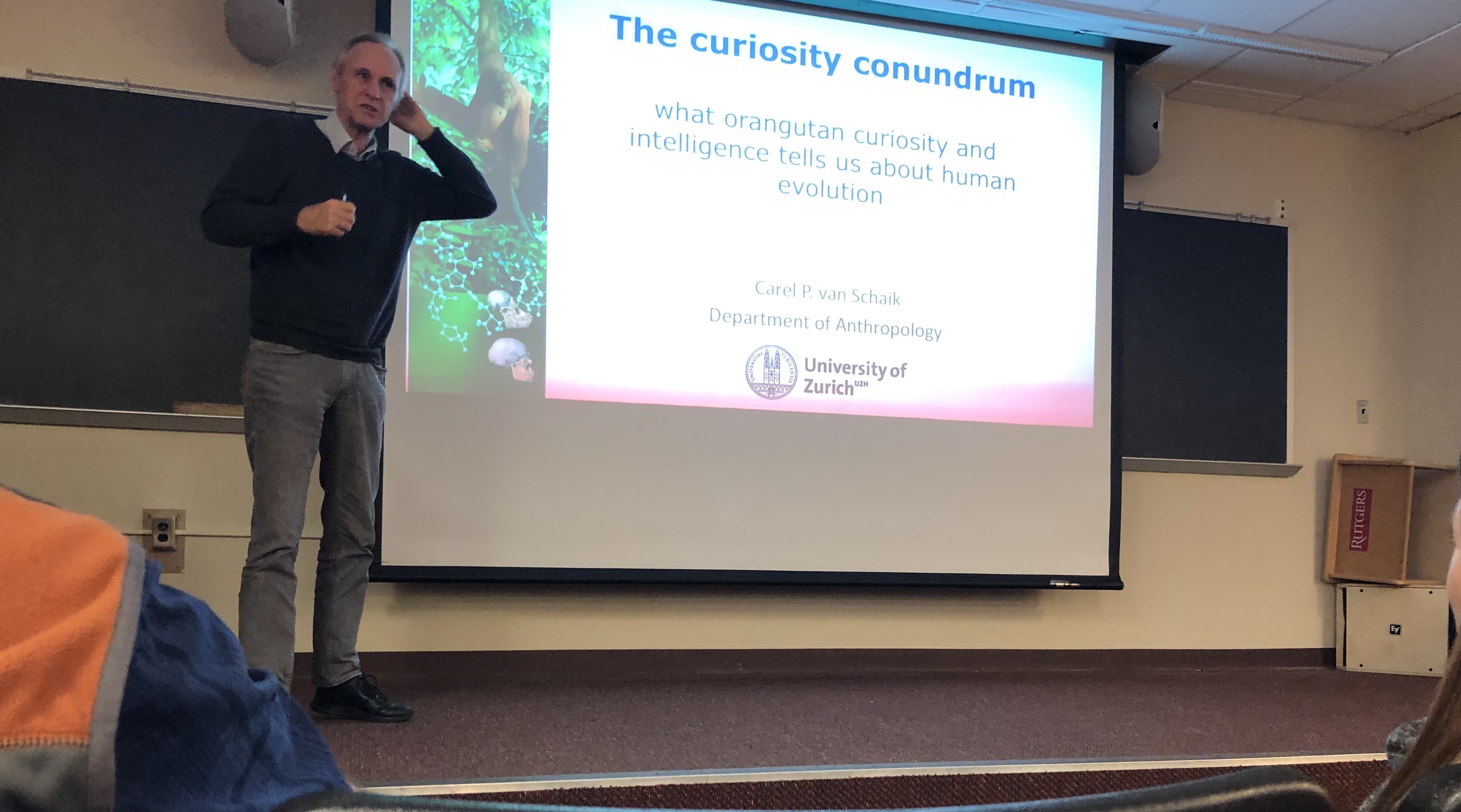News Item
- Details

- Details
 The Lembersky Conferences in Human Evolutionary Studies have been an extremely productive and enlightening series of meetings address some particular aspect of evolution. The CHES faculty has now chosen the topic for the next Lembersky Conference to be held in 2021: "From the Genome to the General Assembly: Cooperation and Conflict across Domains." The conference is being organized by CHES Faculty Members Dr. Lee Cronk. As Dr. Cronk puts, it: "Whenever individuals work together toward shared goals, cooperation is the result. This is true whether those individuals are genes, cells, microbes, people, corporations, or nations. Among humans, cooperation occurs at levels ranging from families and friends to communities, markets, corporations, states, and, via both trade and international organizations, the entire world. Although we are most familiar with cooperation among people, it is also essential to life itself. Indeed, all of the major transitions in evolution – the emergence of the genome, the eukaryotic cell, multicellular organisms, animal societies, and human civilization – have involved quantum leaps in cooperation." The conference will bring together scholars, researchers, postdocs and graduate students from across the country and globe to share data, ideas, and plans for future studies.
The Lembersky Conferences in Human Evolutionary Studies have been an extremely productive and enlightening series of meetings address some particular aspect of evolution. The CHES faculty has now chosen the topic for the next Lembersky Conference to be held in 2021: "From the Genome to the General Assembly: Cooperation and Conflict across Domains." The conference is being organized by CHES Faculty Members Dr. Lee Cronk. As Dr. Cronk puts, it: "Whenever individuals work together toward shared goals, cooperation is the result. This is true whether those individuals are genes, cells, microbes, people, corporations, or nations. Among humans, cooperation occurs at levels ranging from families and friends to communities, markets, corporations, states, and, via both trade and international organizations, the entire world. Although we are most familiar with cooperation among people, it is also essential to life itself. Indeed, all of the major transitions in evolution – the emergence of the genome, the eukaryotic cell, multicellular organisms, animal societies, and human civilization – have involved quantum leaps in cooperation." The conference will bring together scholars, researchers, postdocs and graduate students from across the country and globe to share data, ideas, and plans for future studies.
- Details

- Details
 Dr. Nicole Torosin, a postdoctoral researcher in the Department of Genetics here at Rutgers University, presented a lecture today, "Genetic Variation in Howler Monkey TLR7 and TLR8: Potential Implications for Susceptibility to Yellow Fever Virus." Dr. Torosin's research focused on determining the genetic profiles of two sympatric species of wild howler monkeys in Argentina, before and after an outbreak of yellow fever virus. For reasons that are not entirely known, these primates are significantly more vulnerable than other New World Monkeys to contracting this disease, which was introduced to South America about 400 years ago. Dr. Torosin's study provided some intriguing evidence of some genetic change in these populations, as well as some behavioral changes. Very few other studies of this kind have been done on wild nonhuman primates.
Dr. Nicole Torosin, a postdoctoral researcher in the Department of Genetics here at Rutgers University, presented a lecture today, "Genetic Variation in Howler Monkey TLR7 and TLR8: Potential Implications for Susceptibility to Yellow Fever Virus." Dr. Torosin's research focused on determining the genetic profiles of two sympatric species of wild howler monkeys in Argentina, before and after an outbreak of yellow fever virus. For reasons that are not entirely known, these primates are significantly more vulnerable than other New World Monkeys to contracting this disease, which was introduced to South America about 400 years ago. Dr. Torosin's study provided some intriguing evidence of some genetic change in these populations, as well as some behavioral changes. Very few other studies of this kind have been done on wild nonhuman primates.
- Details
 CHES Alumna (2016) Emily Lynch, whose dissertation research was focused on baboons, has just been hired as Associate Curator of Research at the North Carolina Zoo. In her new position, Dr. Lynch will oversee all zoo-based research as part of the Education, Science, and Conservation Department. She will be responsible for coordinating zoo animal welfare research and monitoring, as well as conducting original research at the zoo. In addition, the position includes administering the zoo's research internship program with North Carolina State University, working with undergrad and graduate students as they conduct behavioral and observational studies on the animals. Congratulations, Emily!
CHES Alumna (2016) Emily Lynch, whose dissertation research was focused on baboons, has just been hired as Associate Curator of Research at the North Carolina Zoo. In her new position, Dr. Lynch will oversee all zoo-based research as part of the Education, Science, and Conservation Department. She will be responsible for coordinating zoo animal welfare research and monitoring, as well as conducting original research at the zoo. In addition, the position includes administering the zoo's research internship program with North Carolina State University, working with undergrad and graduate students as they conduct behavioral and observational studies on the animals. Congratulations, Emily!
- Details

- Details
 CHES PhD Student Rebecca Brittain just received a grant from the L.S.B. Leakey Foundation to support her research: "The Role of the Gut Microbiome in Digestion and Energy Production in Wild Bornean Orangutans Across Shifting Nutritional Landscapes.” Becca is currently in Indonesia doing this research. She is also the recipient of the CHES Albert Fellows Doctoral Dissertation Research Grant. Congratulations Becca!
CHES PhD Student Rebecca Brittain just received a grant from the L.S.B. Leakey Foundation to support her research: "The Role of the Gut Microbiome in Digestion and Energy Production in Wild Bornean Orangutans Across Shifting Nutritional Landscapes.” Becca is currently in Indonesia doing this research. She is also the recipient of the CHES Albert Fellows Doctoral Dissertation Research Grant. Congratulations Becca!
- Details
CHES Alumna (2016),
- Details
 Carel van Schaik (Director, Anthropological Institute, University of Zürich) gave a lecture today on cognition in orangutans. He focused on how curiosity (or rather, a fascinating apparent deficit in curiosity in orangutans), social experience when young, and ecological conditions help to explain the advanced cognitive and innovative skills of this Great Ape. Part of Dr. van Schaik's discussion also focused on very interesting differences between the Sumatran and Bornean species of orangutans, as well as the contributions of research on orangutans in captivity and in rehabilitation centers in Indonesia.
Carel van Schaik (Director, Anthropological Institute, University of Zürich) gave a lecture today on cognition in orangutans. He focused on how curiosity (or rather, a fascinating apparent deficit in curiosity in orangutans), social experience when young, and ecological conditions help to explain the advanced cognitive and innovative skills of this Great Ape. Part of Dr. van Schaik's discussion also focused on very interesting differences between the Sumatran and Bornean species of orangutans, as well as the contributions of research on orangutans in captivity and in rehabilitation centers in Indonesia.




